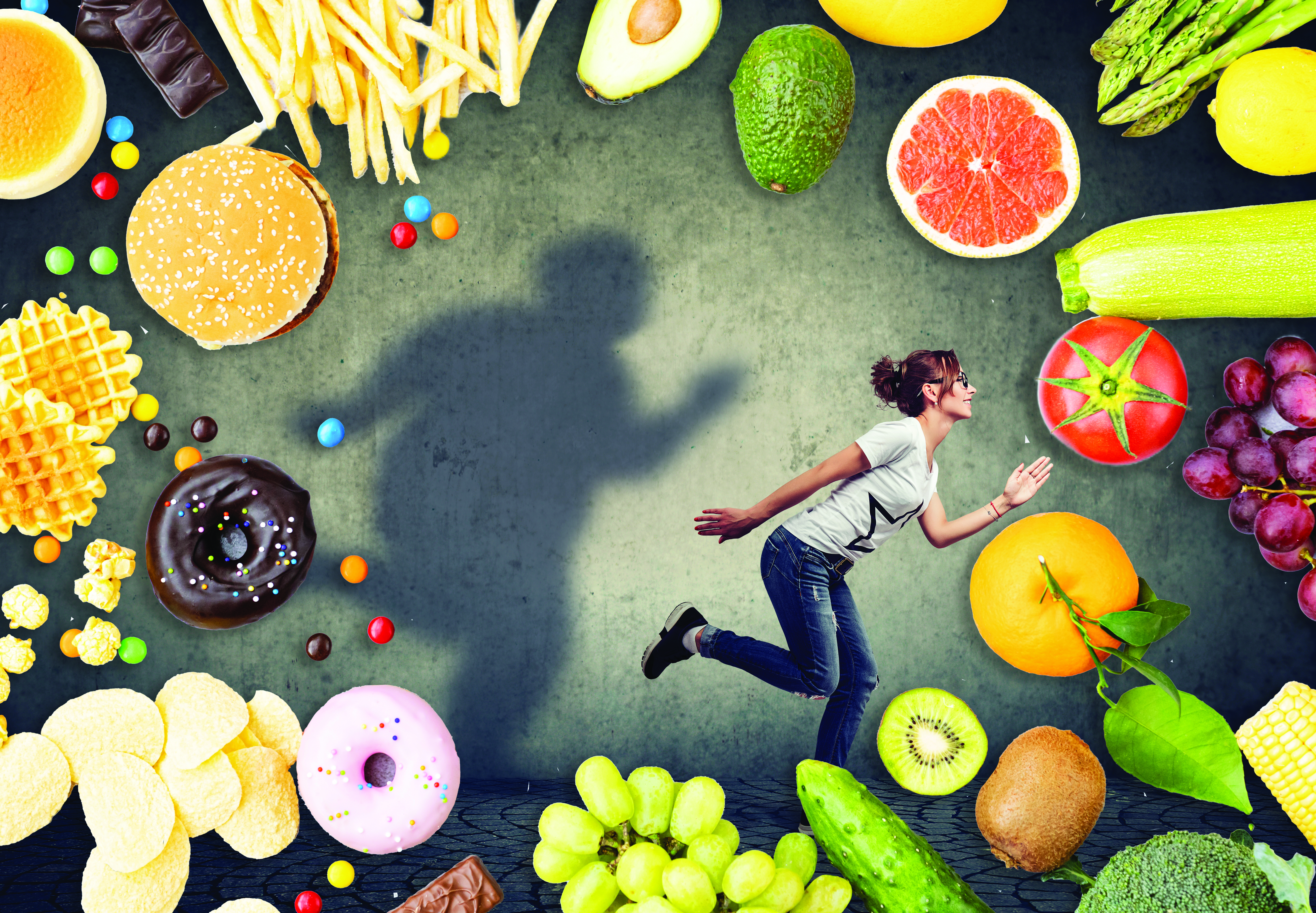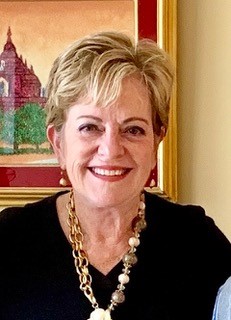My career approach could have killed me

"I rarely exercised, juggled acid reflux and stress, and was obese. I assumed this unhealthy brew was the price of success in a competitive profession." Photo Illustration by Sara Wadford/Shutterstock.
In 1982, as a healthy 29-year-old with a brand-new JD, I joined a Washington, D.C., law firm handling class action tort litigation. Workdays there were fast and furious. Sixty-hour workweeks were the norm, but I was young and hungry, the work was stimulating, and I leaned in.
Twenty years later, after founding and managing a successful small boutique firm that had merged into a BigLaw firm, I faced long unpredictable hours, frequent travel and too many administrative tasks. By then, my diet had whipsawed between takeout food and indulgent restaurant meals with clients. I rarely exercised, juggled acid reflux and stress, and was obese. I assumed this unhealthy brew was the price of success in a competitive profession.
Vanity, a few no-nonsense warnings and missing the things I enjoyed eventually sounded my internal alarm. Getting dressed for work (in suits, not leisurewear) was challenging when waistbands pinched or zippers didn’t close. Photos from law school reunions and partner dinners revealed how big I’d gotten. Medical screening for life insurance put me in a risk category with high premiums. I skipped shopping trips with girlfriends because I was time-starved and feared disappointment in the fitting room. My concert and theater tickets were donated or thrown away when a client had a crisis or needed me on a weekend. Commitments to friends and family often gave way to billable hours. Even on vacation, I checked email and messages constantly.
One day, frowning at my cholesterol level and noting my weight, my doctor announced, “I can guarantee you a heart attack.” As dedicated as I was to my work, I was more determined to stay alive. Something had to give, but in truth, it wasn’t just one thing—I had to change almost everything.
I started working on a healthier me by avoiding a restaurant where I lunched regularly. It had a buffet that wasn’t too good, but it was close to my office and open until 4 p.m., which accommodated calls with West Coast clients. (Zoom wasn’t a thing then.) I often came home late, skipped dinner and went straight for dessert, usually ice cream. Chewing mint-flavored gum when I had the urge for sweets helped me kick the ice cream habit.
I signed up for personal training, which was billed hourly regardless of whether I showed up. Being too frugal to pay for nothing, I usually went. At 50, I was no longer fat but still overweight and overstressed. Then, after some soul-searching and initial resistance from my husband, I relinquished partnership in the law firm. My goal was to shorten my office hours and serve clients with fewer institutional distractions. Happily, an of counsel role suited me and the firm for more than 10 years until I retired.
Forty years have passed since I started practicing law. In that time, some former co-workers and clients have had heart attacks. Stress, disease and depression felled others. Some of my lawyer friends soldier on despite aches and pains or obesity. COVID-19 was particularly unkind to lawyers: Office closings tethered them to home computers; it also shuttered gyms and recreational spaces and put TVs, refrigerators and home bars within reach 24/7.
For a retiree, COVID confinement was an ideal time to exercise. I remembered activities I had enjoyed in my 20s, including racquetball and squash. Unfortunately, no one I knew played, and the courts for those games were indoors—where no one wanted to go.
I decided to try outdoor racket sports—tennis and pickleball—which didn’t completely shut down during COVID. I took parks and recreation group classes, which were fun, inexpensive and convenient. As I improved, I began to play both several times a week.
 Andrea “Lee” Negroni. Photo by Hugo Silva.
Andrea “Lee” Negroni. Photo by Hugo Silva.When restaurants closed, I didn’t order takeout but instead learned to cook a bit to gain control over what, how much and when I eat. In most cases, I can do better at home. For example, at a neighborhood bakery, breakfast oatmeal includes six blueberries, one or two sliced strawberries and a lot of brown sugar. When I make oatmeal, I use a lot more fruit and skip the brown sugar entirely. I once paid $14 for an order of asparagus in a trendy cafe and got three spears. At home, I eat a dozen spears with dinner. I don’t spend much in restaurants anymore—I use the savings for tennis lessons and gym memberships.
I started to read more. In retirement, my intellectual energy expanded to new subjects, including human physiology and nutrition. Michael Moss’ Salt Sugar Fat, Michael Pollan’s The Omnivore’s Dilemma and other books convinced me to radically alter my diet. I sometimes joke that my last meal is going to be a nutritional disaster, but for now I’m avoiding what’s bad for me so I can push back the date of that last meal. I know I can’t control everything about my well-being, but I try not to make unforced errors. Having adopted better habits during the time of COVID, when the world as we knew it reopened in 2023, I’d reached health and weight goals that had eluded me throughout my legal career. Physically, I feel great.
Sources of inspiration
Not all lawyers make the mistakes I did. In fact, other lawyers, including my former partners, helped me kick habits that could have shortened—or ended—my life. Joe Kolar got me enthusiastic about vegetarianism based on the documentary Forks Over Knives. Margo Tank, an athlete who runs like a gazelle, inspired me with her fitness level and had the additional advantage of looking fantastic in anything she wore. Jerry Buckley gave me the book that permanently changed my outlook, Younger Next Year by Chris Crowley and Dr. Henry Lodge. Crowley was Lodge’s star patient and a former big firm litigator. Lodge and Crowley make an irrefutable case for daily exercise, a decent diet, a meaningful social circle and commitment to one’s life’s purpose. Four simple steps.
Crowley’s prescription guides much that I do and don’t do. For example, socializing with work friends is less frequent after retirement. It’s accepted knowledge that social isolation is a serious health risk—even the Centers for Disease Control and Prevention agrees. Crowley suggests making new friends, and I have. I joined exercise-oriented groups on the Meetup app and have played golf, hiked and canoed with people I otherwise wouldn’t have met. I found a new friend and tennis partner, another retired lawyer, on the Nextdoor app. Also along on my well-being journey is David Jaffe, the dean of students at American University Washington College of Law, where I’m on the adjunct faculty. Jaffe hosts the law school’s running team in the annual Lawyers Have Heart race for the American Heart Association. In 2022, with his encouragement, I joined the race team. It was a hard go in hot weather, but I finished. Happily, the 2023 race wasn’t as hard. The students smoked me, but I felt like an Olympian at the finish line.
I’m smart enough to have realized sooner that it isn’t wise or safe to sacrifice healthy habits for professional success. But I didn’t. My choices could have had disastrous consequences. Luckily, my path to vitality was paved in part by lawyers who knew better.
This story was originally published in the December 2023-January 2024 issue of the ABA Journal under the headline: “My Career Approach Could Have Killed Me.”
Andrea "Lee" Negroni is an adjunct professor at American University Washington College of Law and the author of many books and professional articles in the field of mortgage and consumer financial services regulatory law. Her fitness and wellness articles have appeared in the Washington Post, Washington Lawyer, Unique Harbour Living and on the GoHowKnowHow and Athlinks weblogs. Contact her at [email protected].
This column reflects the opinions of the author and not necessarily the views of the ABA Journal—or the American Bar Association.



